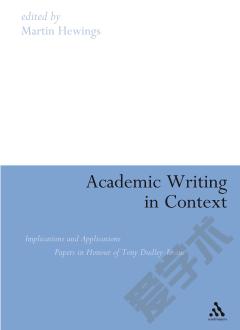Chronicles and Exodus —— An Analogy and its Application
----- 编年史之出埃及记
Chronicles and Exodus: An Analogy and Its Application, by William Johnstone. JSOTSup 275. Sheffield: Sheffield Academic Press, 1998. Pp. 331. $75.00/!;46.00. William Johnstone's recent contribution to the expanding JSOT Supplement Series has something for all biblical and theological scholars, especially those interested in the Pentateuch, the Deuteronomic History, Chronicles, tradition and redaction criticism, but also NT and Christian theological studies. Johnstone has drawn together into one volume a series of articles originally delivered at various conferences or published elsewhere in various journals and books. The genesis and compilation of these articles echo Johnstone's theory on Chronicles as he draws together divergent materials into one volume with an overarching final purpose. Johnstone argues that biblical scholarship should take its lead for the redaction history of the book of Exodus from one of the latest contributions to the Hebrew canon, the book of Chronicles. The redaction history of Chronicles is laid bare to the reader because of direct access to its primary Vorlage, the Deuteronomic History. Thus, trends seen in Chronicles reveal redactional methodology in the ancient context and should inform the critic as the redaction history of Exodus is investigated. This is further bolstered by the intimate relationship between Chronicles and the Priestly tradition in the Pentateuch. Through a series of articles, Chronicles is identified as a Priestly revision of a Deuteronomic presentation of the history of Israel. When applied to the book of Exodus, a similar trend is seen-a priestly revision and supplement to a Deuteronomic presentation of the exodus and Sinai traditions. The book begins with an extended introduction that attempts to draw the collection together as a compact unit. After a quick orientation to his personal journey into pentateuchal studies and a short overview of the content of the articles, Johnstone presents an extended dialogue with and criticism of recent contributors to the field of the redaction of the book of Exodus, namely, E. Blum and G. I. Davies. In the initial section ("The Proposal: Chronicles as Gateway to Pentateuchal Criticism"), Johnstone presents his foundational proposal that Chronicles should be used as a case study for pentateuchal redaction criticism. Here he criticizes the traditionhistorical approach to the exodus that strips the text of its intention to legitimize Israel's religious institutions. In the second section ("Looking at the Gateway: Chronicles in Itself and in its Relation to the Pentateuch"), Johnstone moves to a study of the book of Chronicles, tracing the way that it employs the Pentateuch. He sees Chronicles not as an introduction to Ezra-Nehemiah, but rather as a post Ezra-Nehemiah work that interprets the present predicament of the community as an exile for which God will bring restoration. Priestly vocabulary is employed in order to identify the cause of exile and hope of return. Israel is guilty and needs atonement from this guilt. Johnstone traces this in both narrative and genealogical sections, not only by the use of mil and Vra but also in the placement and role of the Levites and use of Benjamin as a redeemed tribe. Johnstone then moves on to a dialogue with S. Japhet's commentary on Chronicles. He disagrees with her distancing of Leviticus and Chronicles and sees a precedent in Leviticus for the Chronicler's view of guilt. He attacks her view of Israel's relation to the land and especially her assertion that the exile is played down in Chronicles. He claims in the end that the book of Chronicles is "a midrash on a theme of Leviticus." Johnstone's final contribution in this second section bolsters his argument that Chronicles is deeply indebted to the Priestly presentation of the Pentateuch as he argues for the influence of Exod 30:11-16 on David's census in Chr 21. In the third section ("Looking through the Gateway: Applying the Analogy to the Pentateuch"), Johnstone moves into pentateuchal redaction theory. â¦
{{comment.content}}








 京公网安备 11010802027623号
京公网安备 11010802027623号